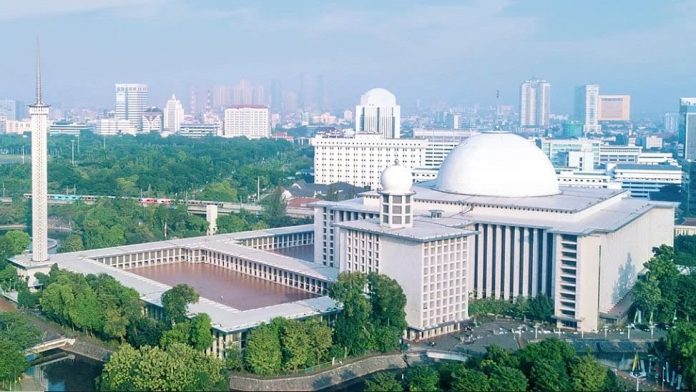17 Apr. 24
In Indonesia, the world’s largest Muslim country, the “Green Islam” movement is gaining momentum as it merges environmental consciousness with religious teachings and cultural values. This unique approach has the potential to significantly impact the country’s environmental landscape. Here are the key achievements and challenges associated with this movement:
Achievements:
- Influential Religious Leaders: Notable figures like Grand Imam Nasaruddin Umar are championing environmental stewardship rooted in Islamic principles, inspiring broader action within the Muslim community.
- Mosque Initiatives: Leading by example, mosques such as Jakarta’s Istiqlal Mosque have adopted green practices like installing solar panels and water recycling systems, demonstrating how religious spaces can embrace eco-friendly measures.
- Fatwas on Climate Change: Prominent clergy issuing fatwas on climate change emphasize the religious imperative of protecting the environment, encouraging adherence to sustainable practices.
- Community Engagement: Grassroots efforts are promoting environmentalism as a Quranic duty, encouraging families and communities to adopt eco-friendly lifestyles in line with Islamic teachings.
- Global Recognition: Indonesia’s environmental initiatives have garnered international acclaim, exemplified by Istiqlal Mosque receiving a prestigious green building accolade from the World Bank. This recognition underscores Indonesia’s potential to lead by example in sustainable practices.
Challenges:
- Industrial Practices: Indonesia’s reliance on industries like coal and palm oil production poses significant environmental challenges due to pollution and deforestation.
- Resource Extraction: Rampant deforestation for resource extraction threatens the country’s diverse ecosystems and exacerbates climate change.
- Political Priorities: Aligning government policies with sustainable practices remains crucial, particularly in energy production and resource management, to support a transition towards a greener economy.
- Public Awareness and Skepticism: Despite progress, there is lingering skepticism about human-caused climate change among the public. Continued education and awareness campaigns are essential to foster broader acceptance of environmental conservation efforts.
Future Outlook:
To amplify the impact of “Green Islam,” Indonesia must foster collaboration among religious leaders, policymakers, businesses, and communities to prioritize sustainability. Investments in renewable energy, reforestation initiatives, and sustainable agriculture are pivotal steps towards a more environmentally conscious future. Indonesia’s status as a major Muslim nation provides a unique platform to showcase the compatibility of Islamic values with environmental preservation, setting a precedent for other Muslim-majority countries and the global community.




